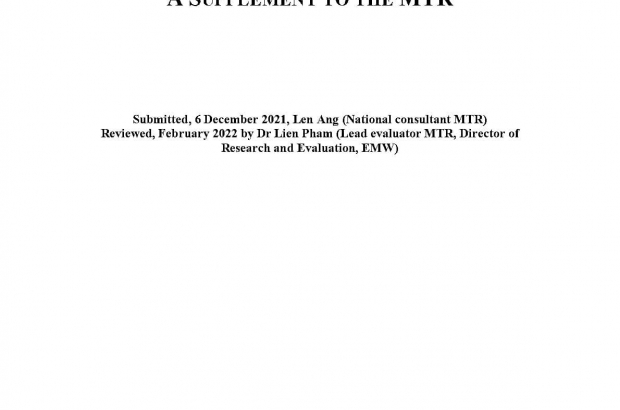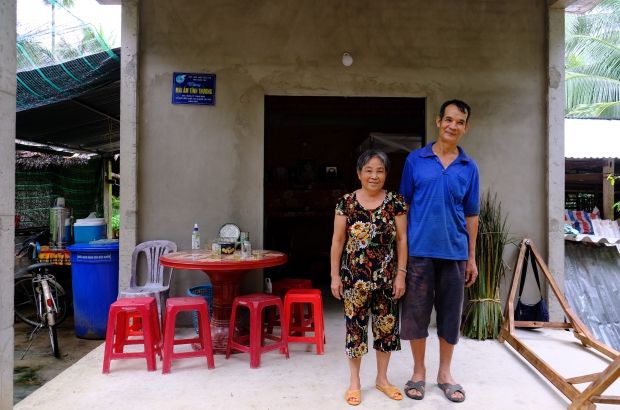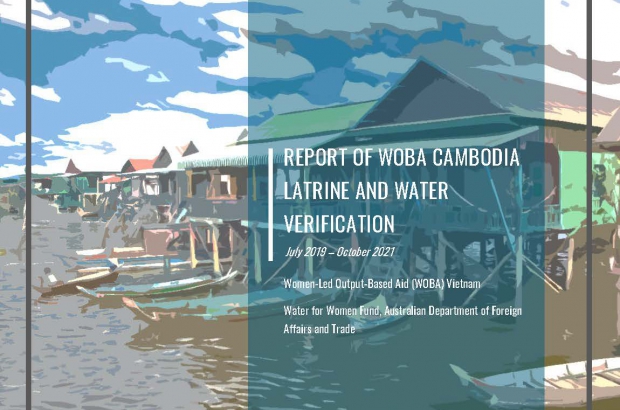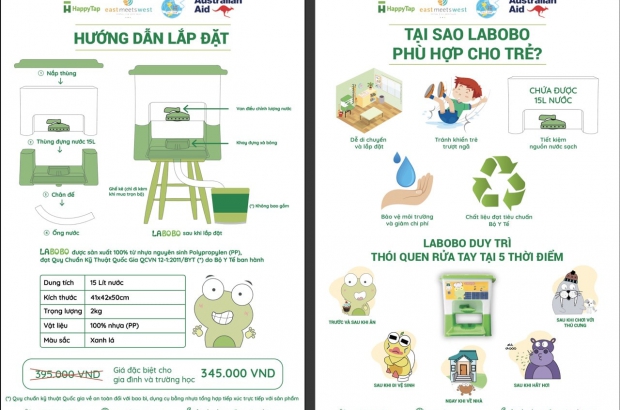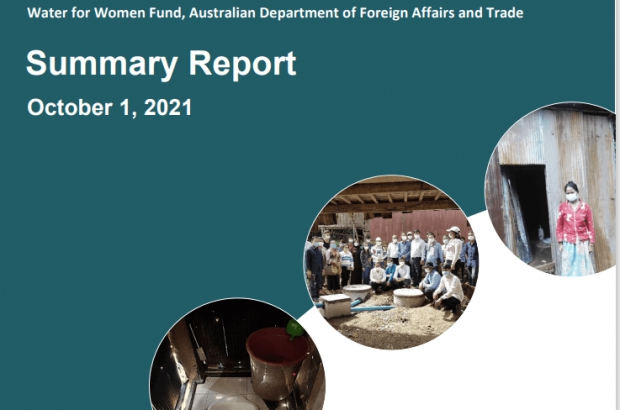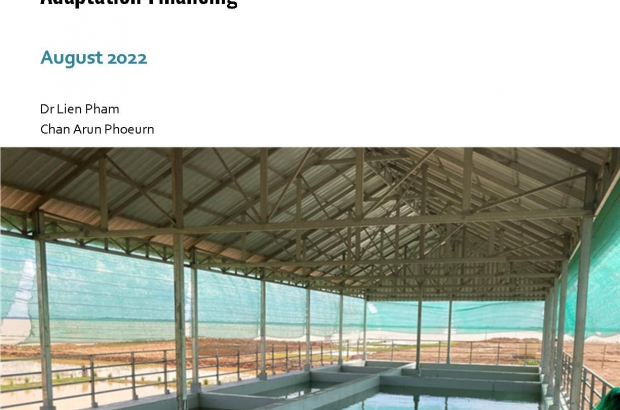2723
A review of the OBA payment process in WOBA – A supplement to the Mid-term Review
This report summarises the results of the field work conducted by Mr Len Ang (independent consultant) to document the WOBA project’s OBA payment process in the four provinces (Pursat, Kratie, Kampong Cham, and Prey Veng).
2814
Impacts of WOBA for marginalized households in rural Viet Nam. Lessons learnt from the Mid-Term Review of WOBA Viet Nam
This learning note is based on the findings from the mid term review of WOBA Vietnam, to share the knowledge and lessons learned about the beneficiaries’ WASH needs and the intended/unintended impacts of the WOBA project for the beneficiaries who are the marginalized households in the rural Vietnam.
2513
Report of WOBA Cambodia latrine and water verification (July 2019 – Oct 2021)
This report presents the results of WOBA’s verification of newly built latrines and new piped water connections. The verification was conducted in the period of July 2019 to October 2021 for 5,325 latrines and 128 water connections by the EMW WASH team.
2736
Hand washing products and hygiene promotion in rural Vietnam: A case study of the COVID-19 Response in the Women-Led Output-Based Aid (WOBA) Vietnam project
COVID-19 has brought attention to behavioural change communication. This study aimed to understand the extent to which the Women’s Union (WU) promotion of handwashing during the COVID-19 pandemic have influenced the knowledge, attitude and handwashing behaviour in rural Vietnam. Employing a case study approach in two provinces, the study surveyed 372 households, health staff, and kindergarten personnel, followed by structured interviews with 12 WU member. The findings suggest that there was a strong sense of morality among the WU members who viewed their handwashing promotion as a collective duty to ensure the health and wellbeing of their community. They promoted handwashing to prevent COVID-19 as part of the WU’s propaganda mandate of a socio-political organisation, which afforded them the legitimacy and authority in the community to carry out the promotion. From the community perspective, accessibility to these communication events and disseminated information on handwashing varied by education and income levels. Perceptions of effective communication methods to change handwashing behaviour were also influenced by socioeconomic characteristics of the information receivers. The study highlights the importance of understanding community-based approach to behavioural change communication, and methodological challenges in assessing such practices in the context of rural Vietnam.
2511
Summary report of the Mid-Term Evaluation of WOBA Cambodia
This report summarises the findings of the mid-term evaluation of WOBA Cambodia. The evaluation assesses WOBA’s progress towards its planned outcomes and support learning by exploring the effectiveness of the strategies and activities implemented from June 2018 to June 2021. The summary report explores some initial indications of impacts and sustainability. It provides important recommendation in the ongoing implementation of the program and progress towards the project’s end-of-program outcomes.
2322
Report of Focus Group Discussions and Scenario Experiment of WASH Suppliers’ Adaptation Financing
This publication reports on the results of the scenario-based field experiment and focus group discussion with the private sector WASH suppliers to understand the internal and external conditions which influence their decisions to provide resilient WASH services in the community. It offers insights into the conditions that enable private sector providers to deliver resilient WASH services for marginalised communities in rural Cambodia.

